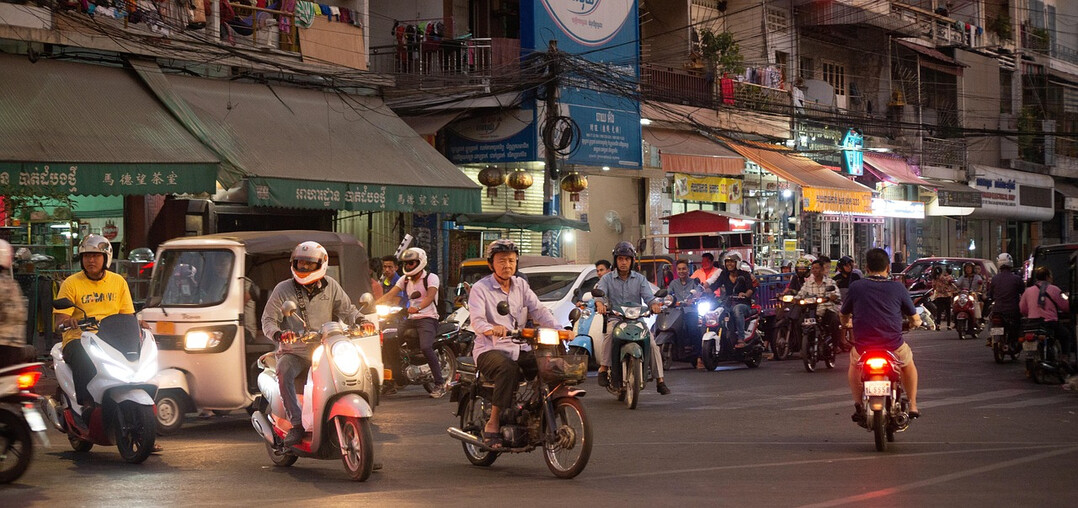
PHNOM PENH – A palpable sense of anxiety and division has gripped the Korean expatriate community in Cambodia following a dramatic spike in crimes targeting South Koreans, particularly those lured by fraudulent high-paying job offers who are subsequently kidnapped, confined, and in some cases, killed by criminal syndicates.
The community, which numbers close to 10,000, is wrestling with two opposing views on how to address the crisis and its sensational coverage by the South Korean media.
"There are conflicting sentiments among Koreans living here," said a long-time Korean businessman, Kim, in Phnom Penh on Monday. "Some worry that the intense Korean media coverage is tarnishing the image of the Cambodian-Korean community, while others believe we should set those concerns aside and use this moment to completely eradicate the various criminal activities in Cambodia."
Alarming Rise in Abductions
The recent focus on Cambodia stems from a disturbing surge in incidents involving Koreans being trafficked into "scam compounds" or "wenchis," where they are forced to engage in online fraud, often known as "voice phishing" or "pig butchering" scams, under threat of violence and torture. The statistics are deeply concerning. The Korean Association in Cambodia estimates that approximately 400 Koreans have escaped these crime syndicates and returned home this year, already doubling the figure of about 200 recorded for the entirety of last year.
Data from South Korea's Ministry of Foreign Affairs paints an even grimmer picture of the escalating threat. Reported cases of kidnapping and confinement involving South Koreans in Cambodia jumped from just 4 in 2021 and 1 in 2022 to 17 in 2023, before skyrocketing to 220 in 2024. The total has surged again this year, reaching 330 by August. A separate report by the Ministry of Foreign Affairs and the Presidential Office indicated that the safety of over 80 South Koreans who traveled to Cambodia on job scams as of August this year remained unverified.
Fear of Misrepresentation and Economic Impact
The relentless media coverage and the South Korean government’s reaction have led some residents to fear that Cambodia is being unfairly portrayed as a "crime den."
"Crime happens in every country, but the excessive focus makes it seem to Koreans that the entire country of Cambodia is a crime state," commented Park, a 55-year-old Korean resident, adding that some reports have been exaggerated.
This perception has had tangible effects. Following the Ministry of Foreign Affairs' decision to elevate the travel alert for certain Cambodian areas, including the capital Phnom Penh, to a Level 2.5 Special Travel Advisory, tourism has notably declined. A local taxi driver at Techo International Airport near Phnom Penh noted the almost complete absence of Korean passengers, a stark contrast to the high traffic of Korean tourists he saw last year.
The Korean Association in Cambodia (KAC) released a statement reflecting the community's mixed sentiments. The KAC voiced concern that "indiscriminate reporting by some media outlets could lead to the whole of Cambodia being mistakenly viewed as a country rampant with kidnapping and confinement," stressing that this is causing "immense damage to the normal economic activities of the expatriate community."
Calls for Joint Action and Stricter Measures
In contrast to image concerns, others within the community are pushing for immediate and vigorous intervention. B, a Korean missionary in his 50s in Phnom Penh, asserted that previous responses by the Korean Embassy and government had been "complacent" and called for aggressive action to sever the criminal ties.
Echoing this demand for action, the KAC urged both the Korean and Cambodian governments to cooperate on comprehensive countermeasures. The association called on the Korean government to immediately dispatch an ambassador and specialized investigators to cooperate with local authorities to ensure investigative effectiveness. It also demanded the deportation and severe punishment of individuals linked to criminal organizations.
Furthermore, the KAC stressed the necessity of monitoring and blocking deceptive online advertisements in South Korea that lure victims with promises of high salaries. Finally, it reiterated a long-standing request for the Korean government to establish a "Korean Desk"—a police unit directly deployed overseas and dedicated to handling crimes against Korean nationals—to enhance the safety of the community.
The escalating crisis has clearly necessitated a unified and robust response, not just from the local Korean community and its representatives, but from the highest levels of both the South Korean and Cambodian governments to ensure the safety and security of Korean residents and travelers in the Kingdom.
[Copyright (c) Global Economic Times. All Rights Reserved.]




























